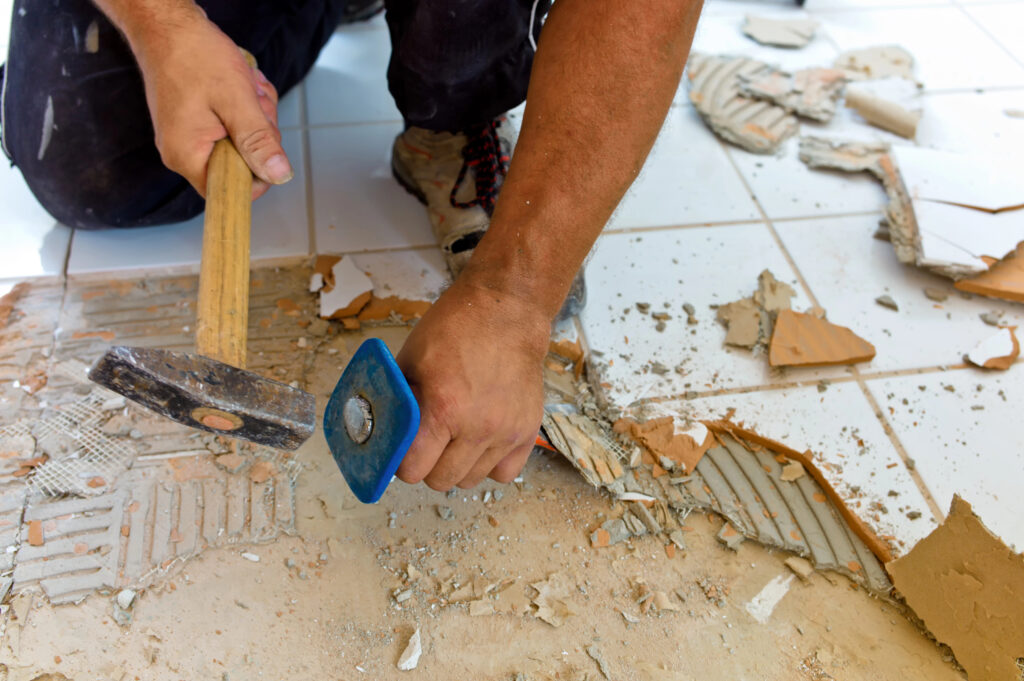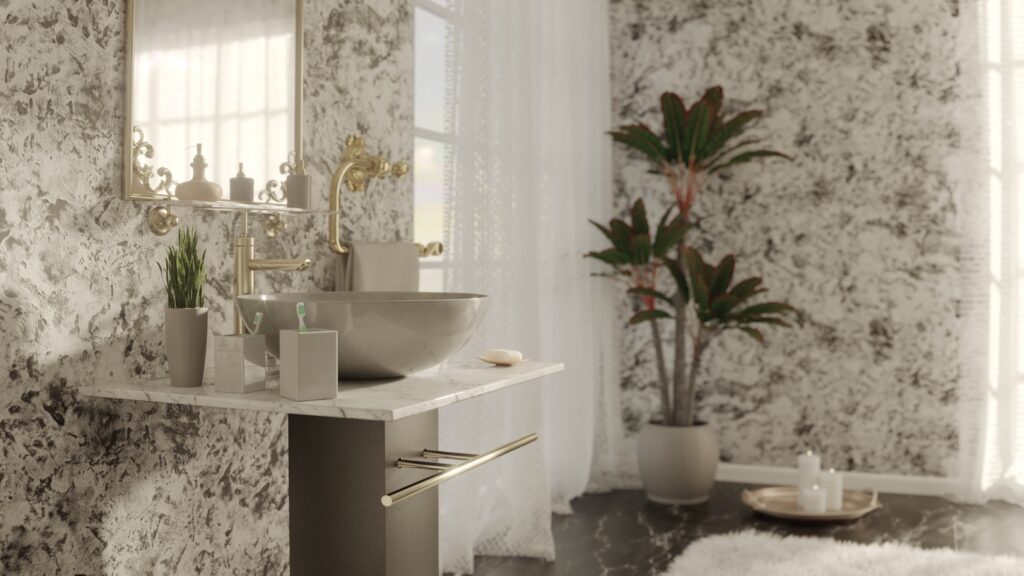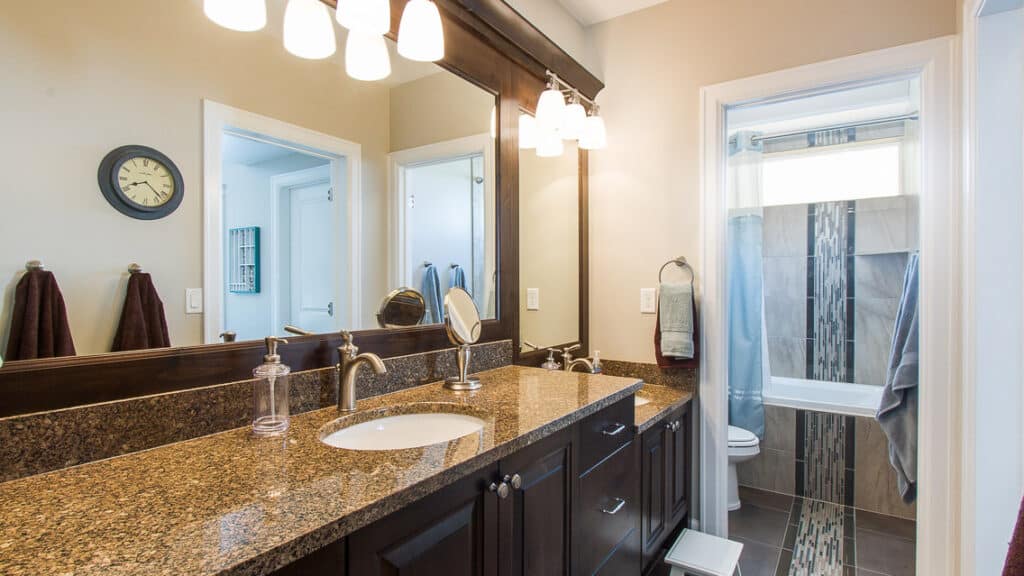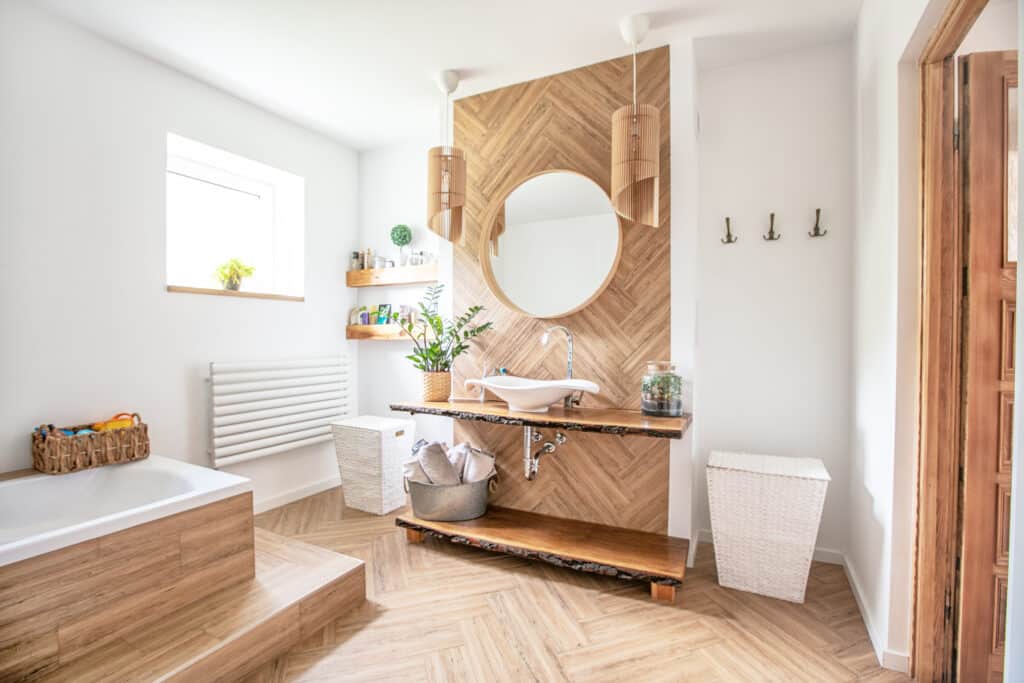
So, you built your home several years ago, and all this time, your basement has remained an unfinished, unappealing storage space that’s collecting dust and cobwebs. It’s time to finally finish your basement and achieve your home’s full potential.
As you decide how to best use the space, consider the benefits of creating a basement rental unit to bring in some extra income, boost your property value, and open up a world of future possibilities. In this blog post, we’ll explore the basics of basement rentals and some things to keep in mind as you plan your remodel.
The Benefits of Basement Rental Units
The advantages of creating a basement rental include:
Versatility and Adaptability
Finishing your basement with the goal of renting it out doesn’t mean you’ll have strangers living in your home forever. Basement rentals are incredibly versatile spaces that can serve many purposes over the years depending on your needs. It’s all about planning for the future.
For example, you can list it as a short-term vacation rental, or if you live in a college town, it can serve as an apartment for students who don’t want to live in the dorms. When your kids grow up and want more space of their own, your basement can serve as a transitional space for them to gain some independence while still living at home.
As your parents get older and need extra assistance, you’ll have the option of having them come to live with you rather than a nursing home. Your basement can even be a deluxe accommodation for overnight guests, making your home your grandkids’ favorite place to visit. Creating an extra living space in your basement is truly a versatile home improvement project that will serve you for years to come.
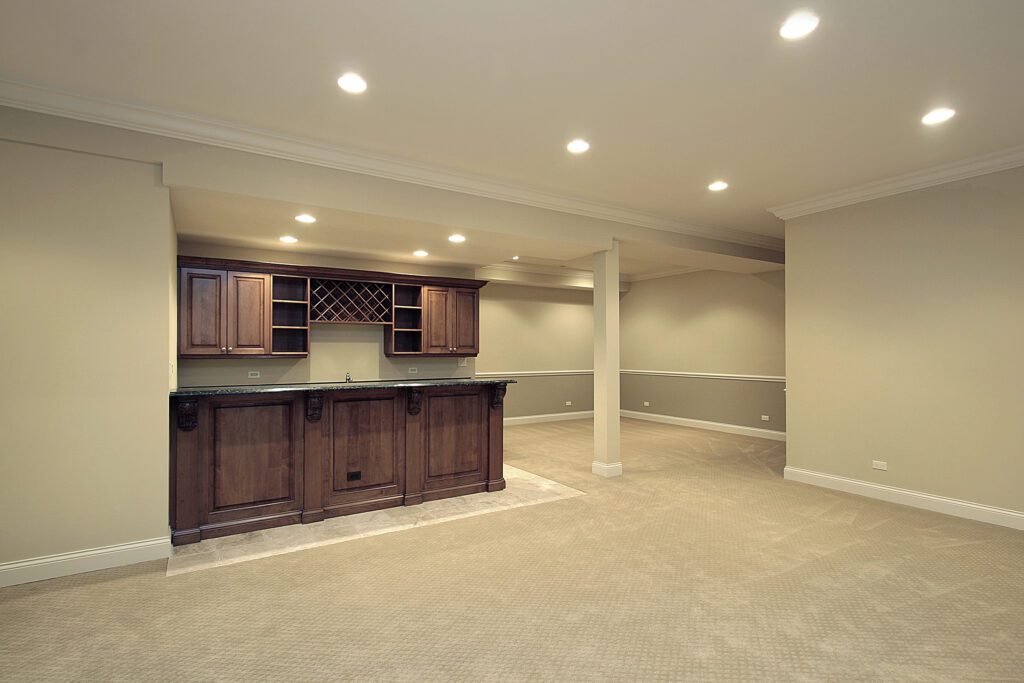
Additional Income
While finishing your basement can come with a large price tag, as long as you have a steady stream of tenants, your basement rental can be a great source of supplemental income. After a while, your basement will pay for itself! Think of all you could do with that extra money — improve other areas of your home, go on a nice family vacation, or maybe even retire early. Plus, if you ever decide to sell your home, a finished basement will add significant resale value.
Things to Keep in Mind
As you plan your basement remodel, there are some things to keep in mind, including:
Feasibility, Legality, and Safety
Sometimes, creating a basement rental unit just isn’t feasible. Check local regulations and research what permits and inspections are required in your area to ensure your project is allowed. You’ll need to meet certain safety requirements in order to convert your basement into a living space, including egress windows in bedrooms, smoke and carbon monoxide detectors, and sprinklers or fire extinguishers.
You also need to have the budget for renovations. While a basement rental will likely pay for itself, it may take a while to recoup the costs of finishing your basement. You may be able to DIY certain aspects of the project to keep costs down, but there are some things — like plumbing, electrical, and demolition — that are best handled by professional contractors.
Addressing Utility and Structural Needs
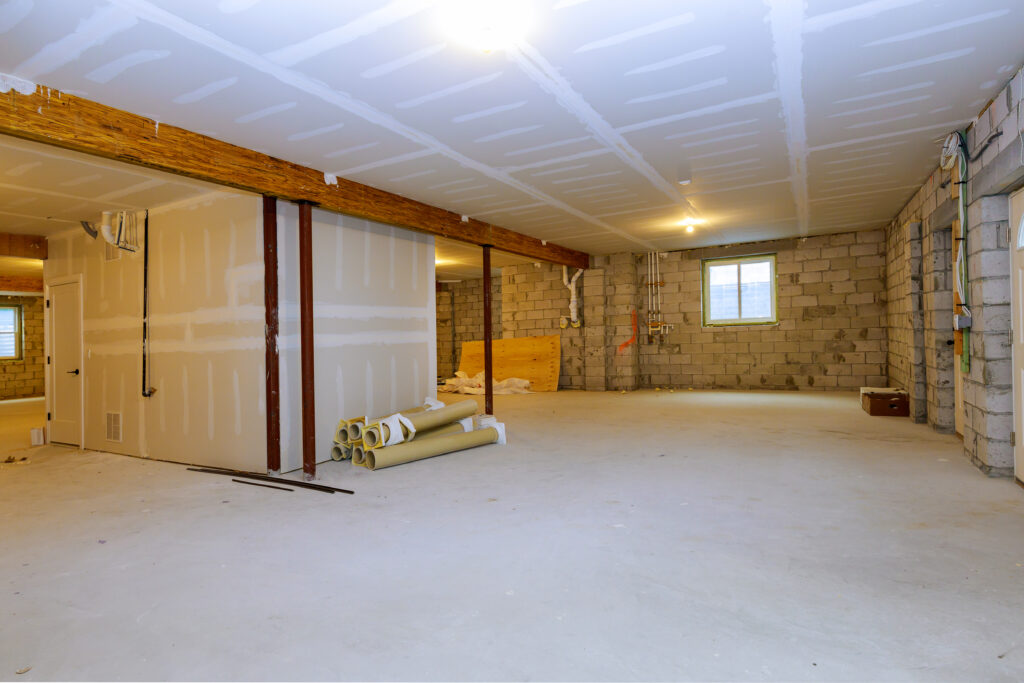
If your basement is unfinished, you’re basically starting from scratch. Ensure the basement’s electrical system can handle additional appliances and fixtures. Add plumbing if needed to create a functional bathroom and kitchen. You may also need to upgrade your HVAC system or add separate controls for tenants, along with adding proper insulation and ventilation throughout the space.
Because basements are underground, they require waterproofing to avoid future damage, flooding, or mold problems. Consider solutions like exterior waterproofing, sealing cracks, and sump pumps to keep everything dry.
Designing the Space for Rental
Once all the safety and utility aspects are taken care of, it’s time to design your basement rental. Plan where different areas will go, including the bedroom, kitchen, bathroom, and living room. You’ll likely want to add a separate entrance to the basement to ensure privacy for both you and your tenants.
If square footage is limited, an open concept floor plan can make it feel more spacious. Keep in mind that someone will be living here; in order to be comfortable, they need a full bathroom, adequate kitchen space, and plenty of natural light from windows.
When it comes to interior design, choose durable flooring options like laminate or vinyl, along with easy-to-clean, low-maintenance finishes. Stick to a neutral color scheme that will appeal to a wide range of potential renters. Consider adding built-in shelving and closets to maximize storage space.
Finish Your Basement with Rosewood
Whether you’re creating a basement rental or want to use the space yourself, Rosewood is your partner in home improvement. Contact us today to get started!

